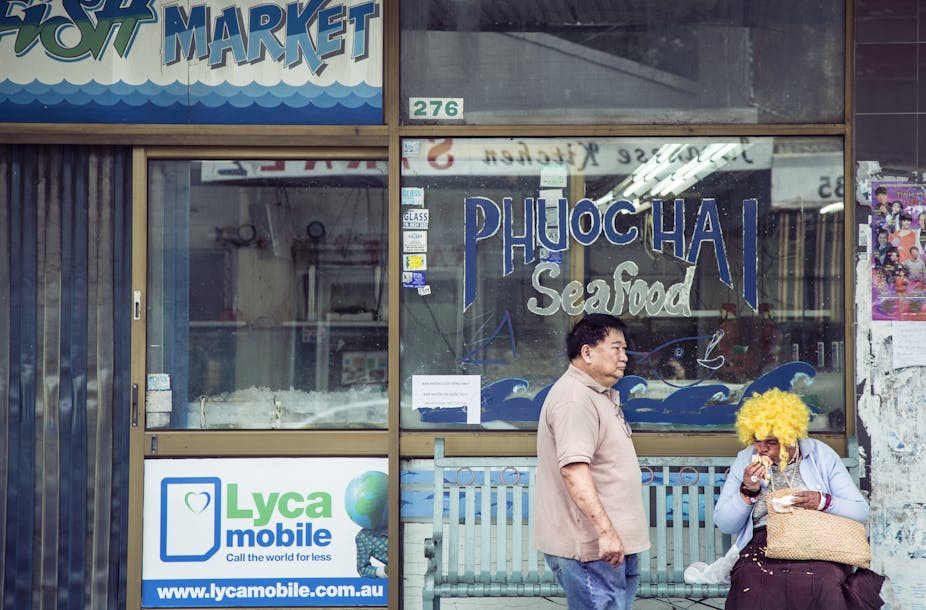We know there will soon be a referendum on recognising Australia’s original inhabitants in the constitution – so what’s at stake?
The answer is crucial for the policy approach we now call Aboriginal Reconciliation; but it also begs another, inconvenient question: why should or would non-Indigenous people care? The “should” is easy enough to argue for or against; the “would” is much harder.
Non-Indigenous people currently make up 22.8 million (97%) of Australia’s [23.5 million residents](http://www.abs.gov.au/ausstats/abs@.nsf/Latestproducts/3222.0Main Features52012 (base). That means any major change to the laws or to national culture must find acceptance with this bloc. Any claim to a national process of Aboriginal Reconciliation is only viable if it speaks meaningfully to both Indigenous and non-Indigenous people.
And meanwhile, “non-Indigenous Australian” is one of the most multicultural ethnic identities in human history. What could such a diverse group think in common?
Do “ordinary” non-Indigenous Australians have views about Reconciliation? Are those views shared? Do any ordinary people actually regard themselves as non-Indigenous Australians – let alone as “ordinary”?
The only satisfactory reply to such questions begins with asking people. I’m part of a research team that’s adapting a successful project in Canada, where – as with Kevin Rudd’s apology to Australia’s Indigenous peoples – the prime minister, Stephen Harper, said sorry to the survivors of Canada’s Indian Residential Schools in 2008.
We are inviting non-Indigenous Australians to talk directly about their sense of non-Indigenous responsibility (or otherwise) for the current and historical situation of Australia’s Indigenous peoples.
The research has involved focus groups at four sites around Australia: Bega, Gladstone, Perth, and Sydney. At each site we have convened separate groups of participants born in Australia and participants born overseas.
The recordings and transcripts of those focus groups are complete. Our team is now analysing and comparing what the participants say, as well as the texture or style of how they say it.
As in the Canadian research, there has been plenty of disagreement between participants. For example, every group has its divisions between supporters of a more progressive national approach to Indigenous peoples, those who are sceptical about the worth and capacity of such an approach, and the don’t-cares.
There have been some appreciable differences between sites, such as the fact groups based in Perth have shown markedly greater scepticism than groups in Bega, Gladstone, and Sydney.
We have been struck by some differences between the Australian groups and their Canadian comparators. Overseas-born participants in Canada have been much more ready to view relations between Indigenous and non-Indigenous peoples through a prism of racial discrimination than their overseas-born Australian counterparts.
Also revealing, Canadian participants generally have been more likely to talk about the current and historical situation of Aboriginal people in their own local communities than their Australian equivalents. Australian participants tend to focus their comments on nationwide issues and on outback examples not related to their local lives. That contrast has been especially marked between the non-metropolitan sites across the two countries.
For all those differences, though, we have been struck by a number of similarities between all participants and extending across all the focus groups in both countries.
One clear consensus is that all participants – from all backgrounds and with all attitudes – assume that the relationship between Indigenous and non-Indigenous peoples merits further working through. There is an accompanying assumption that “reconciliation” is an appropriate label for such work, which stands sharply at odds with some expert opinion.
As a poetry researcher collaborating with political scientists, I have also been struck by some of the common stylistics aspects that run across our participants’ remarks. Sure, Canadians and Australians speak with different accents about different local circumstances and using different figures of speech, but some themes crop up as universal across both countries.
Chief among the universals of style has been the way all participants share a core paradigm of pronouns – “us and them” – where “we” means all the non-Indigenous people in a country and “they” means all the Indigenous people. This is the usage Paul Keating cemented with his Redfern Park Speech in 1992. It is the same usage that Shaun Micallef lampooned last month.
The “us and them” paradigm assumes that “we” constitutes a distinct bargaining unit in the business of reconciliation. The “we” understands Aboriginal Reconciliation as something its members can and should negotiate with “them”.
Which again begs a question: what might the “we” want to negotiate with the “them”? This question seems to be the starting-point for an Aboriginal Reconciliation meaningful to non-Indigenous Australians.
And so the next stages of our research will explore how a country like Australia can enable such a deliberation. We shall be interviewing “ordinary Australians” and public opinion leaders one-to-one to explore what processes of Reconciliation, and what ways of talking about it, might be likely to engage non-Indigenous people in deciding where to stand.
There is a need to find out how the “we” can get ready to negotiate with the “them”.

